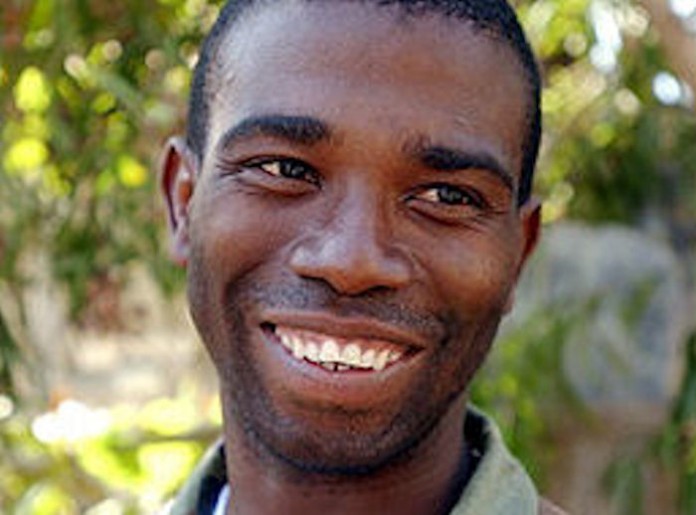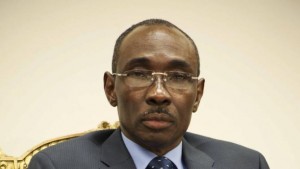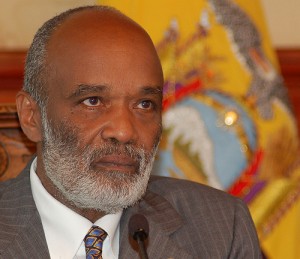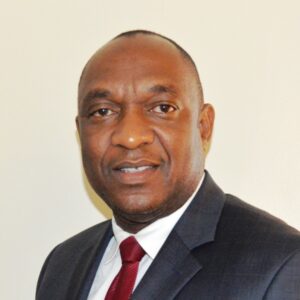
While the secret U.S. diplomatic cables given by Wikileaks to Haïti Liberté focus more on paramilitary leader, Senate candidate, and “known drug trafficker” Guy Philippe, there are several revealing references to former de facto Prime Minister Evans Paul, alias K-Plim.
Ironically, today, there are many calls that Evans Paul and other officials of former President Michel Martelly should be prosecuted for corruption and human rights crimes committed during Martelly’s administration from May 2011 until February 2016. Paul has dismissed such calls as mere political score-settling with no foundation.
On Jun. 1, 2016, Port-au-Prince prosecutor Danton Léger put a travel ban on Paul and 13 other Martelly officials so he could investigate charges. The next day, Paul and 12 of the officials issued a vehement note calling the measure “arbitrary, illegal, unconstitutional and undemocratic” and a form of “political persecution.” Léger immediately lifted the ban.
However, in May 2005, during the two year de facto regime that followed the Feb. 29, 2004 coup d’état against former President Jean-Bertrand Aristide, former U.S. Ambassador to Haiti and Atlanta mayor Andrew Young visited Haiti to encourage “Haitians to put mercy and reconciliation above the search for justice.”
“Young’s message, was straightforward,” wrote then U.S. Ambassador James Foley in a Jun. 3, 2005 cable about the May 18-20 visit, organized by the U.S. Embassy and the Haitian American Chamber of Commerce (AMCHAM). At the time, Aristide’s former Prime Minister Yvon Neptune and Interior Minister Jocelerme Privert were sharing a hot, small National Penitentiary jail cell (charges had still not been formalized) and many other former Aristide officials were in hiding or exile. “Haiti’s continuing problems, rooted in economic and social inequities, cannot be solved if Haitians do not truly come together, forgive, and agree to address them cooperatively and non-violently. The challenge in Haiti, is to bring the benefits of democracy and free enterprise to all people, especially the poor. The most effective way to move forward is not to search for justice and punish those who have done wrong in the past, but to forgive and move on.”

However, Evans Paul, a leader of the U.S.-backed “Group of 184″ civic organizations that helped oust Aristide, did not agree with Young’s “move on” message, so similar to Paul’s own message today.
“KID [ Democratic United Committee] leader (and Presidential candidate) Evans Paul said that ‘forgiveness should go hand-in-hand with the truth;…the page should be read first before it is turned,’” Foley reported.
Paul’s position was supported by author Yanick Lahens, another G-184 activist, and “echoed by other participants from the anti-Aristide movement.”
In fact, Paul would remain implacably hostile to the Lavalas party, even after the Feb. 7, 2006 election that brought René Préval to the presidency for the second time. For example, on the fifth anniversary of the 2004 coup, “Alyans leader Evans Paul tried to puncture the Lavalas legend surrounding the end of Aristide’s presidency by arguing that his term ended not with a coup d’etat but rather with the voluntary departure of the President after the Haitian people lost all confidence in him,” U.S. Chargé d’Affaires Thomas C. Tighe wrote in a Mar. 3, 2009 cable.
Paul was bitter after his pathetic showing in the 2006 election, where he garnered only 2.49% of the vote. This was despite Paul being the preferred candidate of the de facto prime minister and his interior minister, according the Charles Henri Baker, the #2 of the G-184 and a rival presidential candidate.
Baker “accused Interim Prime Minister Gerard Latortue and Interim Interior Minister Paul Magloire of conspiring against his candidacy to the benefit of Evans Paul, ‘their’ presidential candidate,” reported Chargé d’Affaires Douglas M. Griffiths in an Oct. 26, 2005 cable.
The Embassy also had reports that there might be narco-money behind K-Plim, and Griffiths “asked if Baker had received or heard of offers of financial contributions from narco-traffickers [to Paul’s campaign], and Baker replied that he would leave that to the other candidates” to answer, although he “stated that he had ethical concerns about Alyans candidate Evans Paul.”
But the U.S. Embassy had no doubt about the narco-links of Guy Philippe, and nor did the UN Mission to Stabilize Haiti (MINUSTAH) or President René Préval.
For example, Colonel Angel Cedres, the commander of Uruguay’s two MINUSTAH battalions (known as URUBAT I) based in Haiti’s Southern Department, told the U.S. Embassy that “Narco-trafficking is the south’s biggest problem, particularly around the town of St. Louis du Sud,” reported U.S. Ambassador Janet E. Sanderson in a Nov. 29, 2007 secret cable. “Colonel Cedres noted that although his troops are making every effort to combat illegal trafficking, the drug runners often receive tips that MINUSTAH is en route and quickly disappear. He specifically mentioned that the presence of Guy Philippe’s family in Les Cayes posed difficulties for URUBAT I, and that Philippe’s local popularity makes it difficult to develop information on his whereabouts. Ambassador [Sanderson] assured Cedres that the USG [U.S. government] shares his concerns about narco-trafficking and is working closely with the GOH [government of Haiti] to combat this problem.”

But Préval was very dissatisfied with U.S. attempts to arrest Guy Philippe on a drug-trafficking indictment brought against him in Miami by the U.S. Drug Enforcement Agency (DEA).
Préval “expressed bafflement at why the U.S. had not arrested Guy Philippe,” wrote Ambassador Sanderson in a Jul. 8, 2008 confidential cable. Préval complained to Sanderson that Philippe and his associates “were ‘amateurs,’ not someone like (late Colombian drug trafficker) Pablo Escobar. The U.S. arresting them would send out a deterrent signal to the drug trafficking world. Préval admitted that Philippe had ties inside the police and was well-organized.”
Préval repeatedly urged Washington to take action against Philippe, a prodding which seems to have peeved Sanderson. In the same cable she writes that Préval “gave his trademark presentation that drug trafficking was the single biggest obstacle to Haiti’s development, and had to be mastered before Haiti could move on other fronts.”
But six months later, Sanderson was somewhat more sympathetic to the President’s “anger over drug trafficker Guy Philippe.”
“Préval argues, and we agree, that the flow of narcotics transiting Haiti corrupts the political process and is undermining the country’s fragile democracy,” Sanderson wrote in a Feb. 2, 2009 cable. “A number of politicians, police, and judges are believed to be involved in, or profiting from, drugs; Guy Philippe, indicted in the U.S. for trafficking, is running for the Senate.”
However, Sanderson admitted that the she and Préval “diverge on how best to handle the problem,” with Préval calling “trafficking ‘an American problem.’”
“Preval dismisses any suggestion that the GOH needs to develop its own counternarcotics capacity,” Sanderson continued, and “has demanded that significantly more USG resources be devoted to drug interdiction, noting that we spend more money on stopping illegal migrants from Haiti sailing to the U.S. than we do to stop the flow of drugs to Haiti.”
Agents of the Haitian Anti-Drug Unit (BLTS) and the DEA made at least two attempts to capture Guy Philippe and other “drug fugitives” in the tiny seaside town of Pestel, one of them on Mar. 25, 2008, Sanderson reported in an Apr. 3, 2008 cable. But Guy Philippe somehow managed to elude capture, and “has given several radio interviews since the operation, and has vowed that he intends to run for a senate seat.” (Another series of joint BLTS-DEA operations were conducted in June 2009, “during which Philippe again narrowly escaped capture by fleeing on foot into the hills,” said a Jun. 23, 2009 cable.)
Philippe did indeed try to run in the April 2009 Senate elections but the Provisional Electoral Council (CEP) disqualified him for his alleged drug-trafficking ties. In an Apr. 8, 2009 cable, Sanderson writes that “Préval saw Philippe as the most threatening example of a drug lord trying to buy his way into politics.”
But President Martelly was a political ally of Guy Philippe, and Martelly’s 2015 CEP changed the electoral law so that Philippe would not be disqualified again. After participating in the patently fraudulent Oct. 25, 2015 election as a candidate for the Nippes Department Senate seat, Philippe now is set to compete in a run-off on Oct. 9, 2016. Even as a candidate, Philippe claims he has immunity from a Haitian government arrest warrant for his alleged involvement in a deadly May 16, 2016 attack on the Les Cayes police headquarters. Haitian authorities also believe Philippe is linked to a spate of murders and drive-by shootings over the past three months.
But this is not the first time Guy Philippe and his commandos have been implicated in violent acts. On Apr. 3, 2008, “demonstrators took to the streets of Lasavanne, a slum located in Les Cayes, capital city of the South Department to protest the high price of food,” wrote Ambassador Sanderson in an Apr. 22, 2008 cable. “The Les Cayes demonstrations took a turn when rioters aiming to free drug dealers being held in the Les Cayes prison infiltrated the food protesters and turned violent, targeting MINUSTAH… Three UN cars were burned and two houses rented by UN personnel ransacked. A mob threatened the hotel housing Senator Gabriel Fortuné, who publicly echoed government statements that drug traffickers were behind the violence, and the politician had to be rescued by MINUSTAH. In the fray, hotel security guard fatally shot one of the attackers. MINUSTAH believes the Les Cayes violence was orchestrated by elements close to drug traffickers, perhaps including fugitive Guy Philippe.”
Then, on Feb. 18, 2009, “unknown perpetrators sacked a regional electoral office of Pestel, in Grand’anse, according to a press report,” Sanderson reported in a Feb. 20, 2009 cable. “The men claimed to be affiliated with the National Front for Reconstruction (FRN), the political party of rejected Senate candidate (and suspected drug trafficker) Guy Philippe. They subsequently told the media that carrying away the office furniture was their way of reimbursing themselves for expenses incurred supporting Philippe’s campaign. Philippe’s associates were also rumored to be responsible for intermittent roadblocks between the southern towns of Jérémie and Les Cayes the week of Feb. 16.”
Philippe’s men did not even spare anti-Lavalas politicians. “Jean Fritz Laplanche, an OPL [Struggling People’s Organization] candidate for the Grand’Anse Senate seat, was harassed in the town of Pestel on Mar. 14 by supporters of Guy Philippe, a suspected drug trafficker indicted in the U.S., whose candidacy the CEP rejected,” Sanderson wrote in a Mar. 20, 2009 cable. Laplanche “was at home when he heard chants that no elections would occur in Pestel without Philippe’s participation. Laplanche reported that attackers then ransacked his vehicle and stole money intended for his campaign. He later sought refuge in a church.”

Today, the fears of René Préval may soon come to pass. “Preval feared that traffickers, including Guy Philippe, would finance candidates in the next elections or seek election themselves to obtain immunity from prosecution,” Sanderson wrote in 2008. “He said there were several traffickers currently with seats in parliament.”
Among others, Préval was referring to one of Haiti’s most prominent narco-Senators, Youri Latortue, who was recently “reelected” in the fraud-plagued 2015 elections. Latortue recently headed a Senate Commission investigating government corruption, while U.S. Embassy cables flagged him as a “drug dealer” and “poster-boy for political corruption.”
In his book “Paramilitarism and the Assault on Democracy in Haiti,” researcher Jeb Sprague cites Canadian journalist Anthony Fenton who wrote: “A source close to Haitian government circles said, ‘Many people . . . have seen Guy Philippe going in and out of Youri Latortue’s office….’ Others, such as Joel Deeb, a Haitian-American arms dealer who has reportedly brokered deals with Youri Latortue since the Feb. 29, 2004 ouster of President Jean Bertrand Aristide, called Youri Latortue [a] drug-smuggling “Kingpin,” with “close ties” to paramilitary leader Guy Philippe.”
Sprague reports in his book that Guy Philippe met with Evans Paul and other coup leaders on Feb. 29, 2004, the day Aristide was ousted. Whether or not the two men are meeting again today, they are clearly working in tandem to destabilize the interim government of President Jocelerme Privert, whom Evans Paul accuses of being “pro-Lavalas.”
The secret U.S. diplomatic cables unearthed by Wikileaks provide a window into the history, motives, and tactics of both Evans Paul and Guy Philippe, helping us to better understand their long fight to foil the Haitian people’s struggle for democracy and justice.









